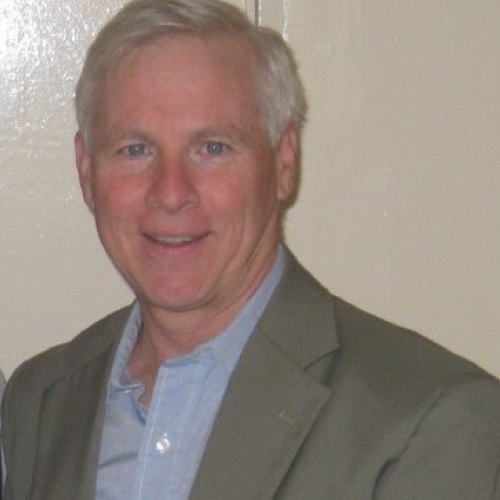What is the story behind MI:RNA Diagnostics?
I'm a veterinary surgeon, I have worked with both large and small animals. While I was doing a postgraduate certificate in internal medicine, I enjoyed looking back at research and studying again and decided to do a PhD. I went to the University of Edinburgh for my undergraduate and the University of Glasgow for my PhD in immunology.
Once I finished, I got a job as a clinical pathologist and was working with diagnostics. I’ve always been entrepreneurial. It didn’t come out of anywhere. I was in finance before I was a vet and had my own company. In previous jobs, I set up things like websites, newsletters, and new ways for clients to interact with the practice, to try to win clients over and try to build that client trust and bond. I always found that very interesting.
Initially, it was just pilot testing and trying out the idea. I was working for a company called Scotland’s Rural College, SRUC, and their veterinary diagnostic testing. They have little innovation fund, as often universities and colleges do. I was able to pitch to them and get a little bit of innovation money. The idea is you have a go and see what happens, and we got some promising results.
I headed out to the business community in Scotland, predominantly to ask them whether they would back my idea. Meaning, grants funding and business competitions. I got enough money together and started to put together a team, mostly volunteers, but a couple of people working on it properly.
By that point we had reached the phase where we were ready to launch our first test, so we did it. The journey is a complete rollercoaster, I'm sure a lot of people say that, but I’ve been lucky that the way we had hoped this would work out has worked out.
What would you say were your biggest stressors as a founder?
I think there’s stress around cash flow. I don’t think that has to be the case. We could improve things for the startup community unless we want only independently wealthy people to be able to start businesses.
When you look at risk stress or how you sit in your risk category personally, I believe that usually, women come lower than men. If you’re a mother and have children to support, it might decrease your appetite for risks and makes it much harder for you to be in this space. I’ve been able to do this because my daughter finished University and she’s now financially independent.
I think it’s a shame that i've had to wait until this phase of my life, but I’m glad I did, knowing how risky it is financially. I think that should change so that we can have more women and people from diverse backgrounds as founders.
The other thing that I found frustrating was people asking me what I was going to put in, in terms of money in the early days. That shouldn't be a question that people ask because you're putting in your time for free. You are putting in all of your knowledge and invention and it should be based on what you know, not whom you know and how much money you can get together through networks.
In terms of things that haven’t gone so well, I would say there have been many times I maxed credit cards trying to get from one month to the next. Investors sometimes take a long time to answer. So, asking people to work for free, and not being able to pay invoices on time because you’re waiting on them, doesn’t sit nicely with me. I prefer to have everything organized and lined up and this certain chaos that comes with cash flow has been difficult.
Was there a moment when you thought it was all over?
People at the time probably questioned what I was doing, but now I understand that when you start a company it’s not just about starting and making time for it, there is an element of changing your life with it.
Yes, a couple of years ago I was living in Scotland, and I had my daughter just finished university, which was great, but my partner was too focused on his own business. I was on housework, dog walking, gardening, cleaning, shopping and cooking. I had a full-time and a part-time job and was working on the company, I just thought “there’s no actual way.” It was a lot of work.
So, I moved to a small house and only had myself to look after. I thought I wanted to give it a shot. I made a massive jump and through to try and see what happens.
People at the time probably questioned what I was doing, but now I understand that when you start a company it’s not just about starting and making time for it, there is an element of changing your life with it.
Particularly if it’s the first time you’re doing it because you must get yourself into a position where you can inspire others, lead, and dedicate your time. If you’re not in this position, don’t go for it because you can only take so much stress in life and you only genuinely have so many hours in the day.
If you’re already at capacity, then you must give up something, rather than trying to add on all the time. I know we’re supposed to have it all and be able to do it all, and I think we can. You can’t do it all at the same time, but it might be a good idea to build a career, raise your children, and take time for your business a little bit. We don’t have to have it all now. Then, once you get to that point in life where you can concentrate on your project, you can go do that and make a success out of it, rather than having it hanging like a stone around your neck.
There are a few trigger points that have been important to keep me going. The first one is that a lot of us have an interest in animal welfare: longevity, quality of life for pets, and the production in the animal market are important to us.
The other big trigger is the environmental impact of agriculture. I think these are real emotive reasons to keep getting out of bed, turning on the screen and dealing with e-mails, even in the face of some adversity.
Can you tell me more about your funding process?
At the moment, I still work both as a vet and on the company full-time. I need to finish this investment round and find security for all the people who have come this far with me.
We did our initial pre-seed round happened with loans, grants, and competition wins. To complete our SEIS round we added interested parties round, mostly vets and farmers. Now we are just about to close the first part of our EIS round, moving to angel investment, which should be in the bank account – we hope – within six weeks.
This is a big step for us in terms of having some job security moving forward. At the moment, I still work both as a vet and on the company full-time. I need to finish this investment round and find security for all the people who have come this far with me.
We are working on building structure, our team, and the technology. We are on the verge of some incredible R&D and getting funding for that from agencies, the government, and other animal health companies.
What advice would you give another founder in the industry?
From a business perspective, so much advice has been invaluable. You take it, analyse it, and you enact most of it at first. As you get further up that ladder of being less of a complete startup and become a mature version of it, you start to filter out some advice.
Most advice is correct when they say you need to take breaks when you need breaks, and you need to look after yourself. I’ve been looking for that outside of the business community as well. Although there's a lot of wellness advice, I think that if you're sitting in a room of founders, perhaps you feel that you can’t show any weakness or that you have to be almost in competition with them.
The founders that I'm in touch with, all like each other and hope we do well, but they are still competing. I think it’s a good idea to get advice on your wellness from someone that has nothing to do with your business community. I've spoken to various friends who have used things like life coaching, counselling and different psychological tricks to help them to be as productive as they can be.
It's not about always getting the best out of yourself. It’s recognizing sometimes it's okay to chill out and have a bad week.
I think that there are different pillars of what you have to care for, such as health, nutrition, stress, and enough sleep, and then you’ll enjoy work. Whereas if you don't do that, even if you're taking some time out to do it, I think you will 'burn out' as the phrase goes.
Is there anything that you would have done differently over the years?
I would have pushed investors for a yes or no before letting them take hours of my time. I believe I’d be stronger from that point of view. I would have also been more confident in my abilities. I’m naturally quite a confident person, but this was new to me, and it would be good to go back to the start knowing what I know now and shine through a bit more to make this journey easier.
Science-wise I would do hundreds of things differently and nothing particularly exciting. Other than that, there are sort of massive regrets when I look back now, but I know it’s all a process and I’ve been huge on learning.
Are there any other founders that you look up to?
From the vet community, the obvious company we look at is PetDx because their diagnostics are ahead of us in timelines. Not necessarily founders who inspired me that are in the startup space, but people that I’m meeting through the investment community or the vet community. People who are doing amazing things; set up businesses or vet practices and the enthusiasm they have for pet care is so important to them.
Certainly, around my PhD, I have supervisors who are very inventive, innovative, and overall, very clever people. People in this supervisory role have been more inspiring to me than other founders, but that will probably change as I move forward because my cohort of founders in this space are also doing new things.





































